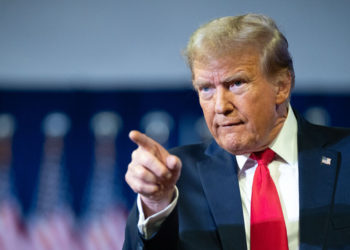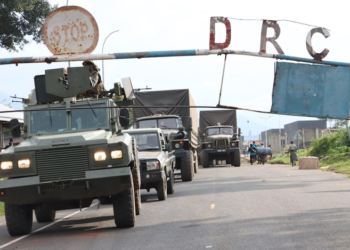By AL JAZEERA
The former leader is charged with treason for his alleged role in a failed coup in November.
A Sierra Leone court has allowed former President Ernest Bai Koroma, who is charged with treason, to travel abroad on medical grounds.
Koroma, 70, was charged early this month with four offences for his alleged role in a failed military attempt to topple the West African country’s government in November.
The High Court on Wednesday ruled in favour of Koroma, whose lawyers had asked it to allow the former leader a trip abroad for medical reasons.
The ex-president, who has been under house arrest, will be allowed to travel to Nigeria for no more than three months, the magistrate said before adjourning the case to March 6.
“The High Court approved the order, and that was transmitted to the Magistrate’s Court where [Koroma] has been appearing since the day investigations started into his case,” Al Jazeera’s Ahmed Idris said, reporting from the capital, Freetown.
Chernor Bah, Sierra Leone’s minister of information, told Al Jazeera the state is “happy to abide by the ruling of the court because we believe in the rule of law”, adding that Koroma is leaving for medical attention but his case remains open.
“At this stage, the case is still alive. It is adjourned,” he said, adding that the court’s instructions to the lawyers included continuing to send updates on Koroma’s health to the state and the judiciary for the duration of his absence.
Nigeria had previously offered to allow Koroma to enter on a temporary basis, which he accepted, according to West Africa’s main regional bloc.
“We know the Economic Community of West African States has been trying hard to convince the Sierra Leone government to think about releasing Mr Koroma to leave the country – probably into exile – but again, the court said he is going on medical grounds to be checked,” Idris said.
Coup attempt
On November 26, gunmen launched a series of attacks in Sierra Leone, breaking into a key armoury, military barracks and prisons, freeing about 2,200 inmates. More than 20 people were killed in the violence.
The government said later that it was a foiled coup led mostly by Koroma’s bodyguards. They summoned the ex-president for questioning at the start of December and charged him with treason on January 3.
Koroma condemned the attacks in a statement shortly after they happened and has denied any involvement. His lawyers have called the charges “trumped up” and part of a “political vendetta”.
There are concerns Koroma’s indictment could stoke tensions that arose from a contentious election in June in which President Julius Maada Bio was re-elected for a second term.
The main opposition candidate rejected the results, and international partners questioned the vote.
Two months after Bio was re-elected, police said they arrested several people, including senior military officers planning to use protests “to undermine peace”.
Koroma served as Sierra Leone’s president for 11 years until 2018. Although officially retired from politics, he remains an influential figure within his political party.
Twelve other people were also charged with treason in connection with the failed coup, including former police and correctional officers and a member of Koroma’s security detail.
According to Sierra Leone’s penal code, a person found guilty of treason could face life imprisonment.







Discussion about this post